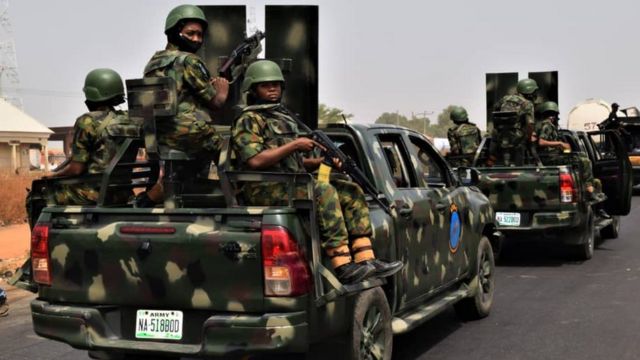The plight of Nigerian military widows has emerged as a pressing concern, with accusations of neglect, bureaucratic hurdles, and even sexual harassment by military personnel impeding their access to crucial benefits and support. These women, who have lost their husbands in service to the nation, find themselves grappling with poverty, hunger, and emotional distress, often left to raise their children alone without the financial and social safety nets they are entitled to. The testimonies of these widows paint a grim picture of a system failing to adequately care for the families of its fallen heroes.
A central issue highlighted by the widows is the difficulty in accessing their husbands’ life insurance and death benefits. Asma’u Noma, coordinator of the Military Widows’ Association in Kebbi State, estimates that a significant percentage of eligible widows have not received these crucial funds, leaving them vulnerable and struggling to make ends meet. This financial insecurity is compounded by the challenges they face in obtaining other entitlements such as gratuities, pensions, and general welfare support. The lack of readily available information and the complex bureaucratic processes further exacerbate their predicament, forcing them to navigate a labyrinthine system while mourning the loss of their spouses.
Adding to their woes are troubling allegations of sexual harassment and extortion by some military officers tasked with processing these benefits. Widows have recounted instances where they were propositioned for sexual favors or asked for bribes in exchange for assistance with documentation and payment. These predatory practices not only deepen the widows’ trauma but also create an environment of fear and distrust, discouraging them from pursuing their rightful claims. The fact that these women, already vulnerable due to their loss, are subjected to such exploitation highlights a serious ethical breach within the military system.
The experiences of individual widows offer poignant illustrations of the challenges they face. Rashida Hamajoda, whose husband was killed by militants, describes being accosted by an officer at the military headquarters in Abuja who demanded either sexual favors or a bribe to facilitate her claim. She ultimately abandoned the process due to this harassment, relying on her husband’s brother to navigate the system on her behalf. Similarly, Hannatu, another widow, recounts facing similar demands for sexual favors, illustrating a pattern of exploitation that appears to target these vulnerable women. These personal accounts underscore the urgent need for intervention and reform within the military to address this deeply concerning issue.
The implications of these failures extend beyond the immediate suffering of the widows. The pervasive lack of support and the prevalence of harassment serve as a deterrent for young men considering military service. As Asma’u Noma points out, if the government continues to ignore the plight of military widows, parents will be reluctant to allow their sons to join the army, potentially impacting recruitment and morale within the armed forces. The neglect of these families undermines the very institution these soldiers died protecting.
The allegations raised by these widows demand immediate and thorough investigation. Calls for accountability from human rights organizations and advocates highlight the urgency of addressing these issues. The military must take concrete steps to ensure the welfare of its widows, streamline the benefits process, and eliminate the corruption and harassment that plague the system. This includes providing clear and accessible information about entitlements, establishing dedicated support channels for widows, and implementing robust mechanisms to investigate and punish those who exploit their position of power. Ultimately, honoring the sacrifice of fallen soldiers requires more than just words; it demands a commitment to ensuring the well-being of the families they leave behind. Failure to do so not only betrays the trust placed in the military by its personnel but also undermines the very foundation of national security.














